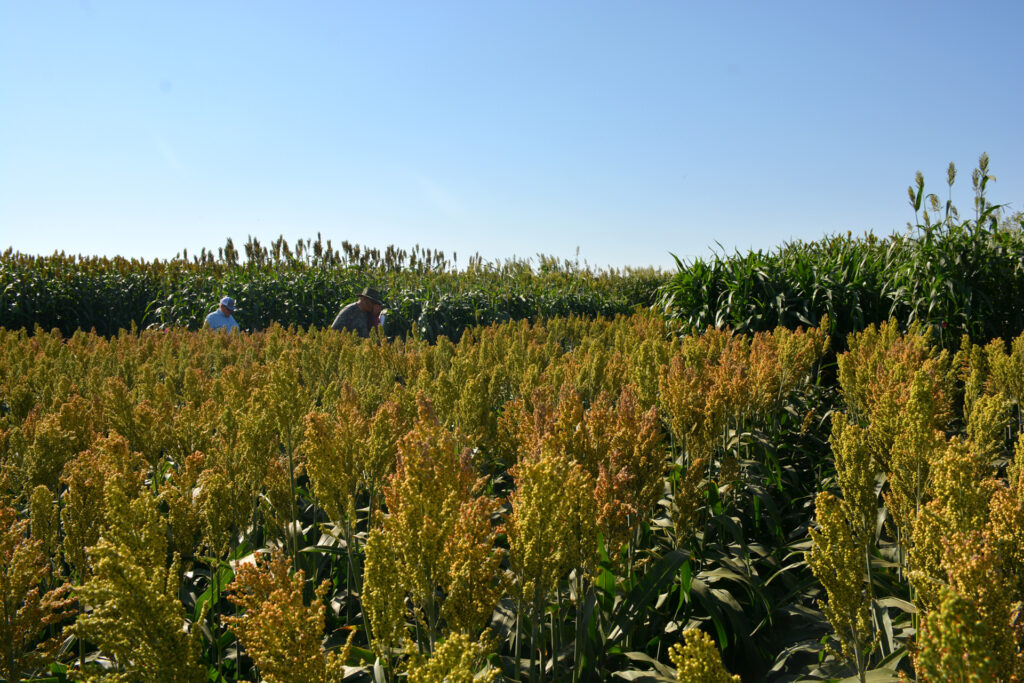As the climate crisis intensifies, building resilience in our food systems is more crucial than ever. At Sorghum United, we believe that neglected and underutilized crops like sorghum and millets have an important role to play.
These ancient grains are hardy, drought-tolerant crops that can thrive in high temperatures and water-scarce conditions. As CEO, I aim to highlight their benefits and increase their production and consumption globally.
Sorghum and millets can survive weather fluctuations and stress that would decimate other crops like maize, rice and wheat. They have an inborn tolerance for heat, drought and waterlogging. Their vast genetic diversity also provides breeders with ample traits to develop new climate-resilient varieties. These hardy crops are key to adapting agriculture and food systems to the impacts of climate change.
Beyond resilience, sorghum and millets offer nutritional and environmental benefits. They contain high levels of protein, minerals and B vitamins compared to mainstream cereals. Millets are gluten-free, and sorghum contains health-promoting compounds like antioxidants. Cultivating these nutrition-dense grains improves food security and health outcomes. Additionally, sorghum and millets require less water and fertilizer compared to other field crops, reducing pressure on constrained resources.
At Sorghum United, we connect farmers with resources for high-yielding, climate-resilient varieties and agronomic support to boost productivity. We promote the benefits of these grains to food manufacturers and consumers, collaborating on product and menu development. And we partner with research institutions to breed improved varieties that can deliver higher yields under changing climates.
The world needs to rethink its major commodity crops and food staples. As extreme weather events become more frequent, dependence on a few vulnerable crops puts our food systems at risk. Diversifying cereal production with climate-hardy grains like sorghum and millets is a crucial climate adaptation strategy. These nutritional powerhouses deliver food security and sustainability gains. It’s time to put sorghum and millets at the heart of a resilient, sustainable food future.
To truly transform our food systems, it is not enough to simply introduce new climate-resilient crops. We must also address the policies, infrastructure and market incentives that reinforce the dominance of mainstream cereals like rice, wheat and maize. At Sorghum United, we engage with policymakers and value chain actors to create an enabling environment for mass adoption of millets and sorghum. This requires investments in R&D, subsidies and minimum support prices to encourage farmers to grow these hardy grains. It also requires upgrading processing facilities, storage infrastructure and distribution networks across the food value chain.
Shifting consumer food preferences is another major challenge. Mainstream cereals are deeply embedded in cuisines, food cultures and diets across the world. We promote the benefits of sorghum and millets through education campaigns, nutrition programs and cooking demonstrations. Our aim is to increase demand for products made from these climate-smart grains. Building consumer awareness and interest in these neglected nutrient-rich foods is key.
The road to resilient, sustainable food systems must also be inclusive. At Sorghum United, we work extensively with smallholder farmers and women’s agricultural cooperatives. These groups have in-depth indigenous knowledge of growing hardy grains in local conditions. We help equip them with resources and training to cultivate millets and sorghum profitably and sustainably. Strengthening vulnerable communities and farmers enables them to be change agents in building climate-smart, nutrition-sensitive food systems.
Nate Blum serves as the CEO of BlüMilo and Sorghum United. Sorghum United is an international NGO serving to advance education and markets development for sorghum and adjacent small grains.



